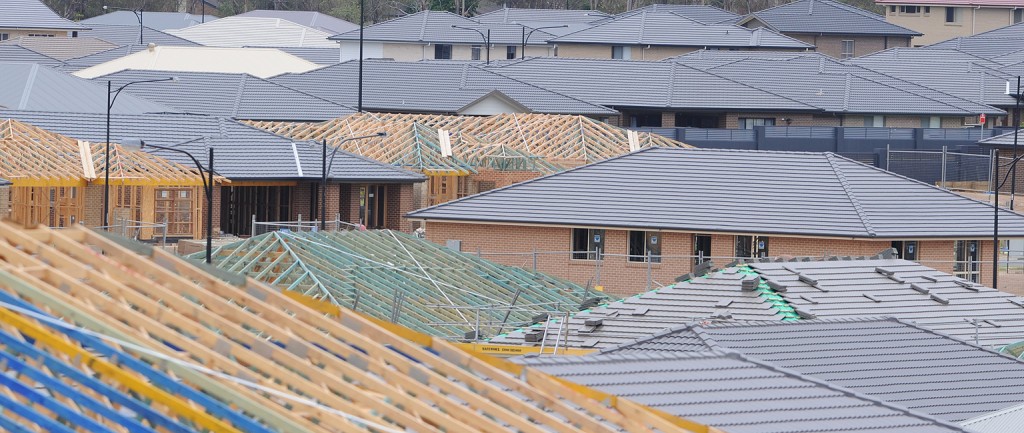Foreign tax crackdown to hit Australian homeowners

A new measure to crack down on foreign property owners skirting capital gains tax obligations will ensnare Australians by forcing owners of homes worth more than $2 million to prove their residency or cop a 10% withholding tax when they sell their home.
From July 1, vendors of all homes valued at more than $2 million will need to obtain a clearance certificate from the Australian Tax Office that confirms they are local residents before selling, even if they are lifelong local citizens.
Without the certificate, which can take up to a month to receive if lodged on paper, the vendor will face a 10% withholding tax.
The move, initially designed to clamp down on foreign homeowners who sell Australian homes without paying capital gains tax, has been slammed for adding red tape, with the potential to dampen turnover and put off more foreign buyers at a time their presence is already waning.
“The initiative will generate uncertainty, delays and a significant administrative burden for Australians who purchase Australian property from foreign interests and Australians,” peak legal bodies warn.
The Law Council of Australia, the Law Society of NSW and the Law Institute of Victoria approached Assistant Treasurer Kelly O’Dwyer just before the election was called, demanding a staggered introduction or even a full year’s delay to the new provisions, given that they apply not only to property transactions but also to sales of shares and units in trusts that own property.
Others throughout the industry have warned the impact could be more than procedural.

Nancy and Wayne Joffee in their high-end property in Watsons Bay, Sydney. Picture: John Feder
Sydney agent Monika Tu supports the newest withholding tax obligation, but notes that it comes at a time offshore buyers are being slugged by higher processing fees on transactions, and facing waiting times of up to two months for Foreign Investment Review Board approval.
“It’s a nightmare for some buyers at the moment; there’s just so much waiting and uncertainty,” Tu says of the foreign market.
“At this stage we would be expecting that we could get things done in a timely manner, but it’s becoming more difficult.”
According to the agent, it is not so much a problem of deals falling over as it is buyers not even being able to get to the negotiating table.
“The market is perfect in the sense that there are lots of buyers and people who want to sell, but the point is that it’s made very difficult by some of these rules,’’ Tu says.
It’s a nightmare for some buyers at the moment; there’s just so much waiting and uncertainty
Ray White chairman Brian White agrees. “It’s been an interesting time,’’ he says. “You’ve seen bank restrict lending to buyers relying on foreign income, and before that you’ve also had the situation with Joe Hockey relating to the direct purchase of property by Chinese. I assume this is part of that same process to make sure that obligations associated with buying and selling property are met.”
The new withholding tax obligations are expected to affect about 2.26% of homes at a time when two-thirds of national property listings are for houses and apartments priced below $500,000.
The impact will be strongest throughout Sydney and Melbourne, according to figures by the REA Group, which has calculated that almost 4.5% of homes on the market in NSW are worth more than $2 million, while almost 2.5% of Victorian homes fall into the same bracket.
Six weeks out from an election, the national property market has been gripped by falling clearance rates and unseasonally soft auction volumes, even as the market approaches its annual winter lull. Vendors are showing reluctance to move as economic and political uncertainty weighs on their minds but some want to sell.

Owners of home worth more than $2 million could be caught up in red tape when they sell.
Homeowner Nancy Joffee is happy to have jumped into the market ahead of the tax.
If all goes to plan, her home worth more than $5.5 million in Sydney’s Watsons Bay will sell before the election, when the new withholding tax kicks into gear, as well as other possible changes, including Labor’s proposed scrapping of negative gearing on existing properties and the Coalition’s $1.6 million cap on tax-free super.
“Some people hold off because of an election and because they’re not sure how things will work out, but we’ve done the opposite,” Joffee says.
“We thought, who knows? If politics change you could end up being penalised for owning property, and I think smart investors want to secure a new home before anything happens.”
Sydney auctioneer Damien Cooley says that the new rules will apply to most properties in the areas where he is active.
It will likely delay a few settlements for the vendors and purchasers who are not aware of the new legislation
“It’s frightening to think of how much red tape is being created,” he says. “It’s another hurdle that will need to be overcome but the reality of it is that it’s just more work for the property industry for every single transaction.’’
He cautions there might be repercussions for the financing of properties and legal issues as lawyers seek to protect vendors, but he doubts that it will hit auction volumes and property sales.
Seven agents contacted by The Australian had no idea the new provision had been put in place, while the Real Estate Institute of Australia notes that its state-based agencies will need to step up an education campaign.
It’s frightening to think of how much red tape is being created
Top commercial agents have downplayed the impact on commercial property, but note it could result in delays.
“It will likely delay a few settlements for the vendors and purchasers who are not aware of the new legislation,” Colliers International investment head Matthew Meynell says.
The REIA, with the Property Council of Australia, worked closely with the ATO, FIRB and Treasury to draft the new provision, which the body describes as an important step to safeguard tax revenue collection.
– with Ben Wilmot
This article originally appeared on www.theaustralian.com.au/property.







